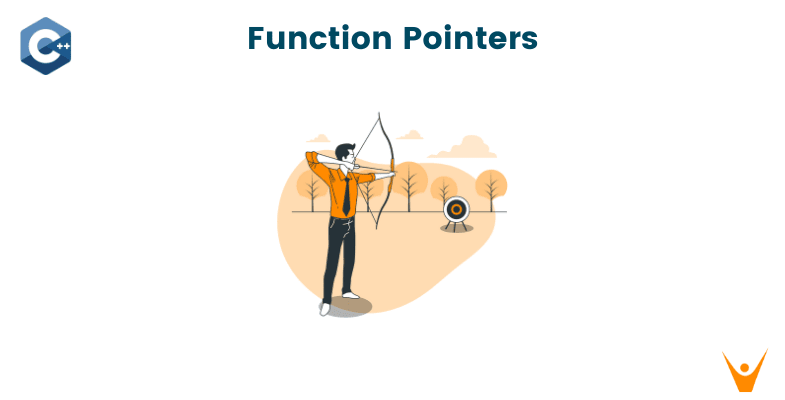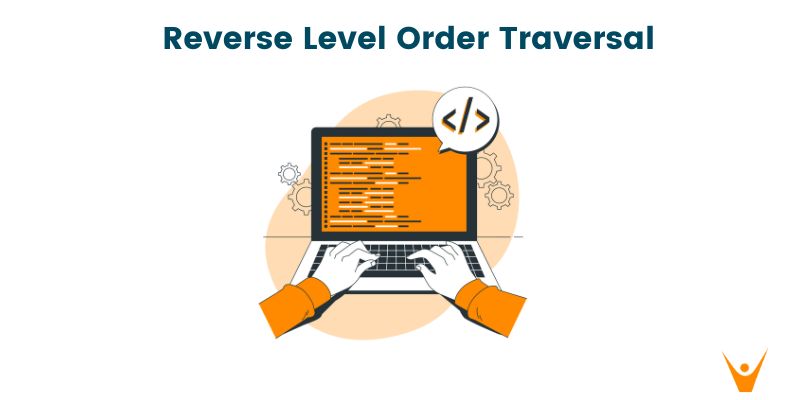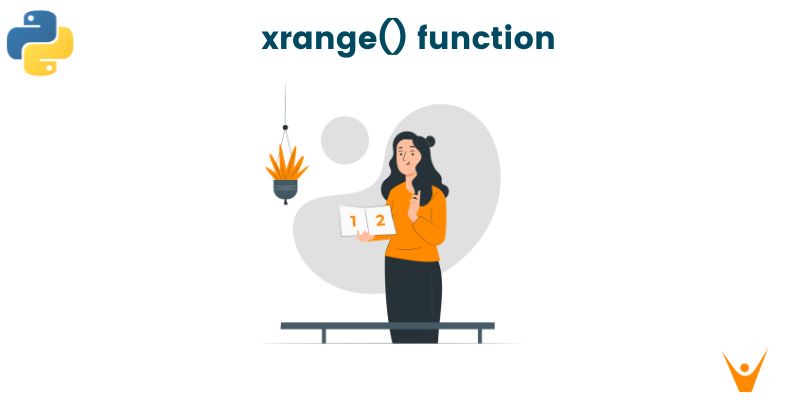One of the most fundamental components of C++ is Pointers. We'll examine the fundamentals of function pointers in C++ in this article, with its syntax and advantages. We'll also look at some of its typical use cases for pointers.
What are Pointers?
Especially for beginners, this is one of the most confusing parts of programming. Simply, A pointer is a form of data in C++ that holds the memory address of another variable. When working with sophisticated data structures and dynamic memory allocation, pointers offer a mechanism to access and manipulate data in memory.
The "new" keyword is used to allocate memory for the variable after the pointer type has been declared to construct a pointer variable. The address-of operator "&" is then used to assign the newly allocated variable's memory location to the pointer variable.
For example, the following code declares an integer pointer and assigns it to the memory address of an integer variable:
int *ptr; int num = 10; ptr = #
When a pointer is given a memory address, you can access the value kept there by using the dereference operator "*." For example, the following code assigns the value of 20 to the variable that "ptr" points to:
*ptr = 20;
Function Pointers in C++
Function pointers are pointers that point to functions in C++. It stores the memory address of a function so that it can be used to invoke a function. These pointers can also be used to pass arguments by reference. Instead of using a copy of the value, this enables the function to alter the original variable supplied as an input.
This powerful feature of C++ language enables functions to be dynamically triggered at runtime, saved in data structures, and provided as arguments to other functions.
Function pointers are particularly useful when combined with higher-order functions, which are functions that take other functions as arguments or return functions as results.
How to write a Function Pointer in C++?
The return type and argument types of a function must be specified to declare a function pointer in C++. The following is the syntax for declaring a function pointer:
return_type (*pointer_name)(parameter_list);
The function's return type is indicated here by "return type," the list of parameters it accepts is shown by "parameter list," and the function pointer's name is indicated by "pointer name."
For instance, you would write the following to declare a function pointer that points to a function that accepts two integers as parameters and returns an integer:
int (*myFunctionPointer)(int, int);
The memory address of the function can be assigned to the function pointer once it has been declared, allowing you to allocate it to a function. You can accomplish this by using the address-of operator "&" and the function name in the following manner:
myFunctionPointer = &myFunction;
Here, "myFunction" is the name of the function that the pointer is assigned to.
To call the function through the function pointer, you simply use the dereference operator "*" followed by the pointer name, like so:
int result = (*myFunctionPointer)(arg1, arg2);
Thus, "arg1" and "arg2" are the function's input arguments, and "result" is the function's return value.
In C++, function pointers may also be used for classes and objects. By including the class name and the scope resolution operator "::" in the declaration, you may, for instance, declare a function pointer that points to a member function of a class as follows:
return_type (class_name::*pointer_name)(parameter_list);
Here, "return_type" and "parameter_list" are the same as before, "class_name" is the name of the class, and "pointer_name" is the name of the function pointer.
Overall, C++'s function pointers are a strong and adaptable feature that let programs treat functions like data and pass them around. Although they can be a little difficult to use at first, they can significantly increase the expressiveness and flexibility of C++ applications once they are grasped.
What are the Advantages of Function Pointers?
Function pointers are useful in C++ because they offer a versatile way of producing reusable code. It is feasible to develop extremely modular code that can be readily modified to fit a variety of use cases by providing function pointers as arguments to other functions or storing them in data structures.
The ability to pass functions as parameters to other functions is another benefit. This makes it possible to create generic functions that may be used with any function as long as it has the right signature. It also provides the ability to create callback functions, which are functions that are called by a library or framework in response to an event or condition.
Moreover, function pointers make it feasible to develop abstract base classes that specify a common interface for a collection of related classes by using function pointers to implement virtual methods in C++. As a result, code can be written that can be used with any object that complies with the interface without having to be familiar with the specifics of the implementing class.
What cannot be done with these pointers?
Although function pointers are robust, they have several restrictions. It is not possible to alter the function itself using function pointers. Once a function is defined, its code cannot be modified at runtime using a function pointer since it is fixed at that point.
Non-static member functions cannot be directly referred to using function pointers. A wrapper function or a lambda function must be written to use a non-static member function with a function pointer.
Function overloading cannot be implemented with it because Function pointers must have a constant signature, while function overloading enables numerous functions with the same name but distinct parameter types.
Finally, type-safe function interfaces cannot be made with function pointers. As function pointers are essentially just pointers to memory addresses, calling a function pointer by mistake with the incorrect parameter types could result in unexpected behavior.
Conclusion
To sum up, the pointer is one of the strongest features of C++ that enables dynamic memory allocation.. Understanding the fundamentals of function pointers in C++, such as how they are declared and what are there advantages is important for every C++ developer. Happy Learning :)








